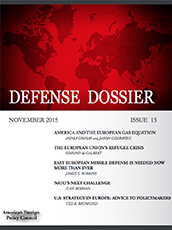World War III In Syria?
Peace in our time in Syria? Not even close. Last Thursday, international negotiators meeting in Germany announced that they had reached what was described as "an agreement toward halting hostilities." Not a ceasefire, not an armistice, but a deal to make another deal to possibly stop the fighting. "I'm pleased to say that as a result today in Munich," Secretary of State John Kerry said at the time, "we believe we have made progress on both the humanitarian front and the cessation of hostilities front... to be able to change the daily lives of the Syrian people." Note to Kerry: Try not to say "Munich" when announcing a peace deal, especially one doomed to fail.
